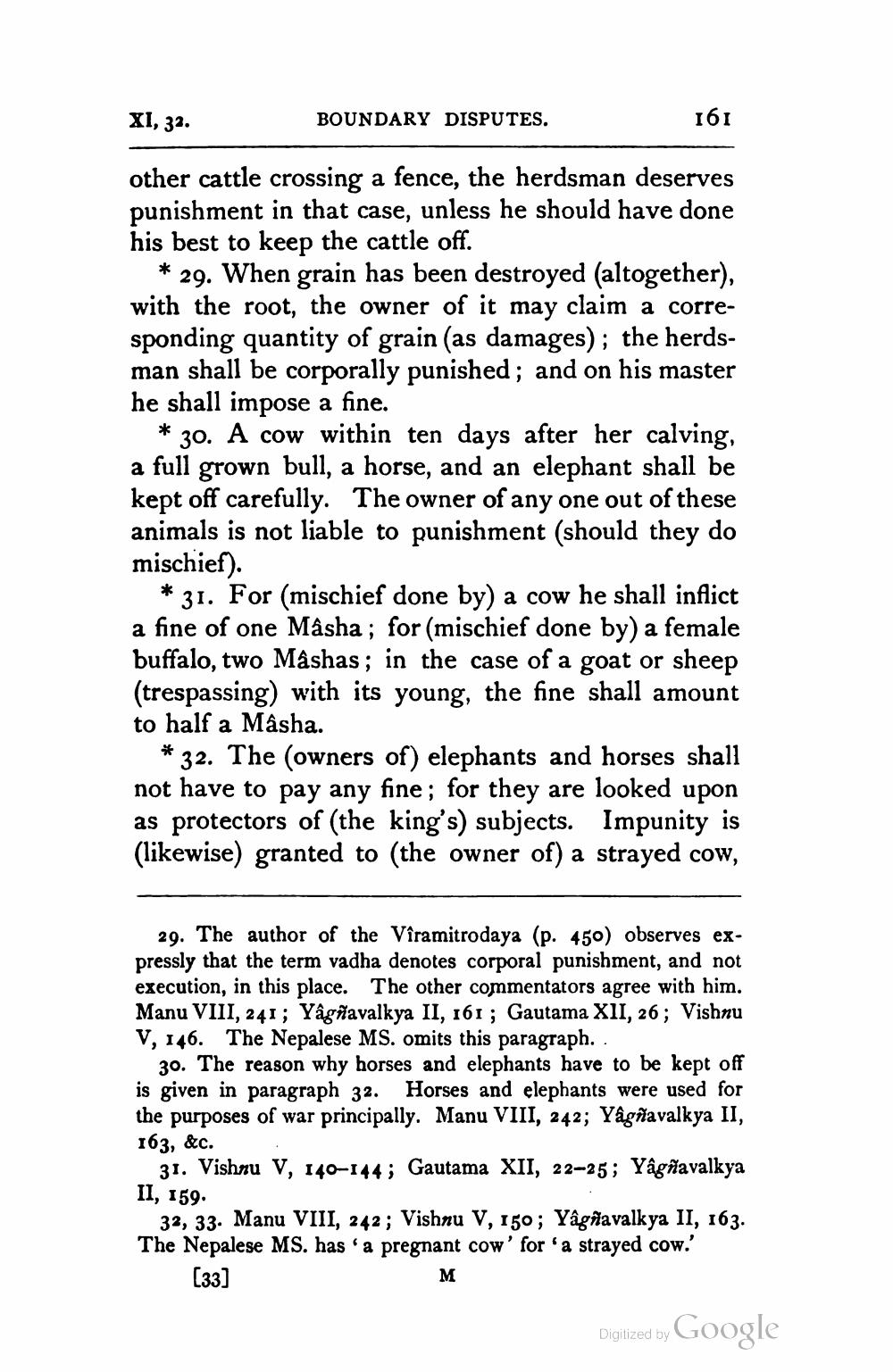________________
XI, 32.
BOUNDARY DISPUTES.
161
other cattle crossing a fence, the herdsman deserves punishment in that case, unless he should have done his best to keep the cattle off.
* 29. When grain has been destroyed (altogether), with the root, the owner of it may claim a corresponding quantity of grain (as damages); the herdsman shall be corporally punished; and on his master he shall impose a fine.
* 30. A cow within ten days after her calving, a full grown bull, a horse, and an elephant shall be kept off carefully. The owner of any one out of these animals is not liable to punishment (should they do mischief).
* 31. For (mischief done by) a cow he shall inflict a fine of one Masha ; for (mischief done by) a female buffalo, two Mashas; in the case of a goat or sheep (trespassing) with its young, the fine shall amount to half a Masha.
* 32. The (owners of) elephants and horses shall not have to pay any fine; for they are looked upon as protectors of (the king's) subjects. Impunity is (likewise) granted to (the owner of) a strayed cow,
29. The author of the Vîramitrodaya (p. 450) observes expressly that the term vadha denotes corporal punishment, and not execution, in this place. The other commentators agree with him. Manu VIII, 241; Yâgñavalkya II, 161; Gautama XII, 26; Vishnu V, 146. The Nepalese MS. omits this paragraph..
30. The reason why horses and elephants have to be kept off is given in paragraph 32. Horses and elephants were used for the purposes of war principally. Manu VIII, 242; Yagñavalkya II, 163, &c.
31. Vishnu V, 140-144; Gautama XII, 22–25; Yâgñavalkya II, 159.
32, 33. Manu VIII, 242; Vishnu V, 150 ; Yâgħavalkya II, 163. The Nepalese MS. has a pregnant cow' for 'a strayed cow. [33]
M
Digitized by Google




